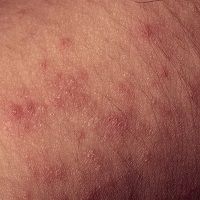Shortage of Natural Acid Triggers Eczema
The lack of natural acids could potentially explain why some individuals are more susceptible to developing eczema.

The lack of natural acids could potentially explain why some individuals are more susceptible to developing eczema.
Natural acids like cis-urocanic acid, made from a protein, help to build a protective barrier in the outer layers of the skin.
A recent study published in the Journal of Allergy and Clinical Immunology suggests that an inadequate level of the acid could affect how well the immune system cells in the skin work.
Researchers from the University of Edinburgh used donated blood and skin samples to assess epidermal antigen-presenting cells from nonlesional skin.
The acid works to regulate immune cells, and in its absence, the skin can become inflamed.
A slightly different version of the gene that produces the filaggrin (FLG) protein is reportedly found in approximately 50% of people of European descent, across the globe. According to experts, this altered gene could affect their ability to create cis-urocanic acid.
Additionally, the skin produces this acid in response to sunlight, which could be why some people experience improvements in their eczema symptoms with greater exposure to sunshine.
Clair Leitch, MD, University of Edinburgh Medical Research Council Centre for Inflammation Research, concluded, “Our study suggests the FLG protein, and the cis-urocanic acid it forms, are important for building protective barriers in the skin. This helps to stop the skin overreacting to dust, detergents, and other irritants.”